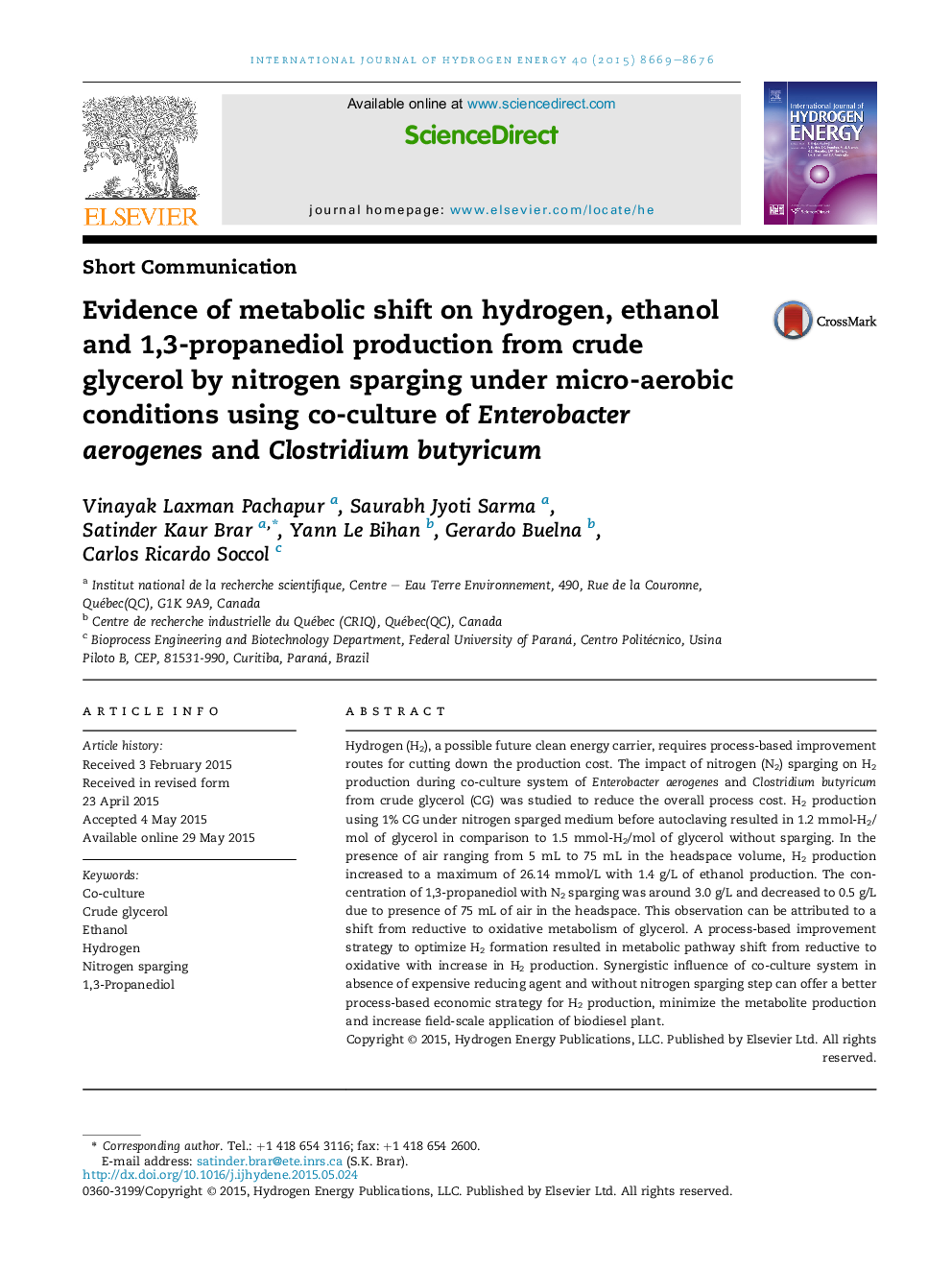| کد مقاله | کد نشریه | سال انتشار | مقاله انگلیسی | نسخه تمام متن |
|---|---|---|---|---|
| 1271320 | 1497445 | 2015 | 8 صفحه PDF | دانلود رایگان |

• H2 production in anaerobic, micro-aerobic and aerobic conditions was investigated.
• H2 production increased to a maximum of 26.14 mmol/L without N2 sparging.
• 1,3-PD production decreased with increasing amount of air in the headspace.
• N2 sparging attributed a shift from reductive to oxidative metabolism of glycerol.
• Co-culture without N2 sparging a better economic strategy for H2 production.
Hydrogen (H2), a possible future clean energy carrier, requires process-based improvement routes for cutting down the production cost. The impact of nitrogen (N2) sparging on H2 production during co-culture system of Enterobacter aerogenes and Clostridium butyricum from crude glycerol (CG) was studied to reduce the overall process cost. H2 production using 1% CG under nitrogen sparged medium before autoclaving resulted in 1.2 mmol-H2/mol of glycerol in comparison to 1.5 mmol-H2/mol of glycerol without sparging. In the presence of air ranging from 5 mL to 75 mL in the headspace volume, H2 production increased to a maximum of 26.14 mmol/L with 1.4 g/L of ethanol production. The concentration of 1,3-propanediol with N2 sparging was around 3.0 g/L and decreased to 0.5 g/L due to presence of 75 mL of air in the headspace. This observation can be attributed to a shift from reductive to oxidative metabolism of glycerol. A process-based improvement strategy to optimize H2 formation resulted in metabolic pathway shift from reductive to oxidative with increase in H2 production. Synergistic influence of co-culture system in absence of expensive reducing agent and without nitrogen sparging step can offer a better process-based economic strategy for H2 production, minimize the metabolite production and increase field-scale application of biodiesel plant.
Journal: International Journal of Hydrogen Energy - Volume 40, Issue 28, 27 July 2015, Pages 8669–8676